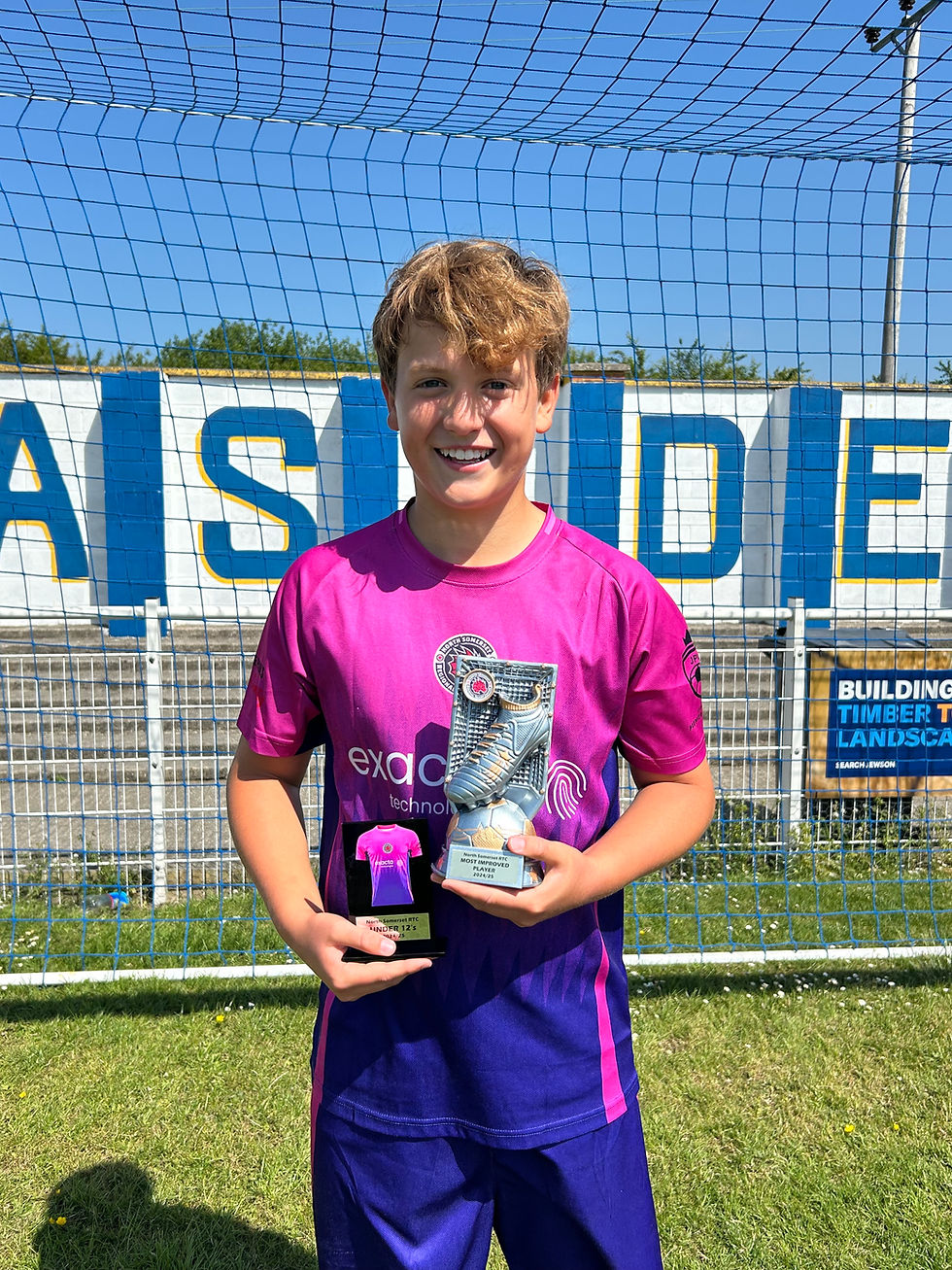What Kid’s Football Can Teach Us About Healthy Ageing
- Darren Morris
- May 28, 2025
- 3 min read

Over the weekend, my son Jake won ‘Most Improved Player’ at his football team’s end-of-season awards.
The other trophies on offer were Coach’s Player and Players’ Player - both fantastic recognitions.
But I’m super pleased that Jake won Most Improved.
When I was a kid, I probably would’ve seen that award differently. Maybe as a consolation prize. Something you got if you weren’t already the best.
But now, I see it for what it really is: A reflection of resilience, effort, growth, and a willingness to keep showing up even when progress feels slow.
It represents something that matters more than talent or popularity: The courage to keep learning and keep getting better.
But this mindset isn’t just for kids or sport. Whether it’s in business, leadership, or healthy ageing, the people who stay vital, relevant, and fulfilled are the ones who embrace change, adapt, and strive to grow.
Why “Most Improved” Might Be the Longevity Mindset We All Need
Here’s what I’ve learned through my work in longevity and healthy ageing: the mindset behind a "Most Improved" award is not just good for your self-esteem, it’s good for your healthspan.
We often think of ageing well in terms of food, movement, and sleep (and rightly so), but what’s often overlooked is the deep, science-backed connection between lifelong learning, psychological growth, and longevity.
The Science of Staying Sharp and Resilient as We Age
1. Neuroplasticity never stops - if you don’t stop using it.Your brain remains adaptable well into old age, but it requires stimulation. Learning new skills, facing challenges, and stepping out of your comfort zone helps create new neural connections. Whether you're taking up a language, picking up a sport, or simply pushing yourself to get a little better at something, you’re literally keeping your brain younger.
2. Resilience is protective.Studies show that psychological resilience - the ability to bounce back from setbacks - is linked with lower levels of inflammation, improved immune function, and even longer lifespan. In other words, the emotional fortitude behind that Most Improved trophy might just be a life-extending trait.
3. Growth mindset = longevity mindset.People who believe they can change and improve - even later in life - are more likely to take care of themselves, recover from illness, and stay socially and mentally engaged. They also tend to experience less cognitive decline.
So What Can We Learn From Our Kids?
There’s something so inspiring about watching a child persist at something, not because they're naturally talented, but because they’re willing to keep going until they crack it. In today’s culture of immediate gratification, this is something to encourage and foster in our children. To listen. To take feedback. To stumble and stand back up.
As adults, we sometimes forget that this is still available to us. That we can still be the most improved in our own lives.
Whether it’s:
finally taking your health seriously
learning to manage stress differently
getting stronger, more mobile, or more rested
building better boundaries or deeper relationships
The key isn’t being perfect. It’s being in motion. It’s becoming someone who gets a little better over time. Not perfectly. Not instantly. But continuously.
In Healthy Ageing, Slow Progress is Still Progress
In the world of health trends which promise instant results, it’s easy to overlook the quiet power of daily, imperfect effort. But those are the exact habits - the consistent, compounding choices - that lead to real transformation over time.
That’s how we preserve our minds, our mobility, our purpose and, yes, even our longevity.
So wherever you are right now, don’t worry about being the best. Just stay committed to being better. Improving bit by bit.
So here’s to the Most Improved.To those who keep showing up, working hard, and getting a little better each day.Because in the long run, that’s what really moves the needle - in sport, in life, and in health.





Comments